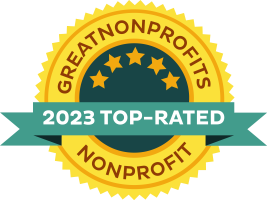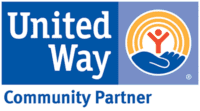
Contributor
EBONI KELLY
Director of the Early Education Apprenticeship Program (EEAP)
Just one year ago, everything was “business as usual” for many workplaces across the country as awareness began to grow about a mysterious virus spreading rapidly across China. COVID-19 was a cause of intrigue, but quickly became a cause for concern as it spread across the U.S., shuttering schools, restaurants, and small businesses, or forcing organizations to resort to working remotely.
The ability to work was a relief for many, as the alternative would have likely been either job loss or the risk of exposure by continuing to work on-site. While working remotely quickly became the new normal for some, there were others who – because of the nature of their work – could not work from home. Such is true of the early childhood education workforce. Sometimes referred to as “babysitters,” employees in this field are at times overworked, often under paid, and yet it is they who continued to show up daily to work, so grocers, first responders, medical staff and other essential members of the workforce could keep us safe and healthy.
In fact, the COVID-19 pandemic pushed early childhood educators into the spotlight as being “essential” possibly for the first time, ever.
The early childhood education workforce is a tight–knit community of employers, mentors, non-profit and philanthropic organizations, so it is no surprise that without any prompting, the Tarrant County Child Care Coordination for Essential Workers Task Force was formed. This collaboration which included, Child Care Associates, Camp Fire First Texas, Early Learning Alliance, Educational First Steps, and the Rainwater Charitable Foundation was a coordinated effort to meet the needs of employers in the field, as well as assessing program availability and capacity for providing childcare for other essential workers such as healthcare providers and others who continued to work through what has not become an ongoing crisis.
This community of early education advocates also immediately began reaching out to congress to provide much needed funding to ensure that childcare centers continued to operate, providing a safe haven for children and ensuring that other essential workers could focus on public health and safety, knowing that their children are in good hands.
Notable figures such as Mark Cuban, Luka Dončić and Dwight Powell displayed their awareness of the importance of childcare for healthcare workers by donating $500k to provide child care for health care workers.
At the time, Daniel Podolsky, the president of University of Texas Southwestern Medical Center, expressed that the hospital is deeply grateful for the donation. “This will alleviate a tremendous burden faced by so many nurses, physicians, lab technicians, and other care team members working nonstop on our COVID-19 response. Having support for childcare will be one less thing they have to worry about,” Podolsky said.
Indeed, this was a great gift to healthcare workers, and we all are thankful for their sacrifice as they worked to keep Americans safe and healthy. The early childhood community is equally proud and grateful to the early childhood education workforce for providing childcare while also navigating their own business fluctuations, staffing concerns and personal stressors around the COVID-19 virus.
One year later, as Covid-19 numbers continue to rise, and the seriousness of this pandemic has been felt worldwide, let us not forget to thank an early childhood educator for showing up, as they always have and let us recognize that early childhood educators are essential.






